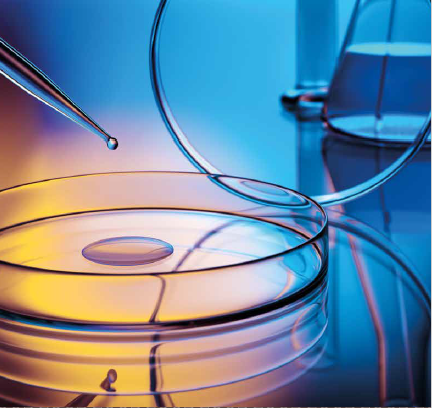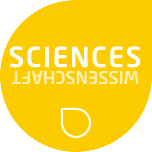Selected projects
Under the third call for projects of the Science Offensive, seven projects that are both highly scientific and contribute to a strong Upper Rhine metropolitan region will receive funding.
This means that over the next three years, almost 8 million euros will be invested in the Upper Rhine research and innovation cluster. The funds come from the European Regional Development Fund (ERDF) under the INTERREG Upper Rhine programme, public funds from the federal states of Baden-Württemberg and Rhineland-Palatinate, the Grand Est region and Switzerland, as well as contributions from the participating research institutions.
Brochure of the selected projects of the initiative Science Offensive 2018 (in French)

Partners: Université de Strasbourg, Universitätsklinikum Freiburg, Universitätsmedizin Mainz, Fachhochschule Nordwestschweiz (Basel/Muttenz)
Associated partners: SATT Conectus Alsace, Eucor – The European Campus GETC
The aim of the PERSONALIS project is to create a database containing information on patients with autoimmune diseases and an information tool for treating physicians.
Global budget: 1 494 635 €
- ERDF: 500 000 €
- Regional funding: 250 000€
- Swiss funding: 296 781,03 €
Partners: INSA Strasbourg (ICube – Equipe Conception, Système d’Information et Processus inventifs (CSIP)), Hochschule Offenburg, Université de Strasbourg
Associated partners: Safran Landing Systems Molsheim Atelier Carbone, Altran Technologies Division Est, Siemens Division Production Process Automation Haguenau, Socomec, Plavis GmbH, CCI Alsace Eurométropole, Grand E-Nov, Rhenatic, ECAM Strasbourg-Europe, N. Schlumberger
The VIRTFac project focuses on the development of a digital platform enabling companies to design cyber-physical production systems. The platform, with the help of which factory processes can be represented virtually, will also provide various computational tools for the redesign or optimisation of production systems. In addition, the project addresses fundamental research questions concerning the emerging needs related to the introduction of virtual industrial planning platforms.
Global budget: 999 996 €
- ERDF: 499 998 €
- Regional funding: 249 999 €
Partners: INSA Strasbourg (ICube – Equipe Systèmes et microsystèmes hétérogènes (SMH)), Hochschule Trier, Hochschule Karlsruhe
Associated partners: Centrale Lille, Université de Nantes, Sheffield Hallam University, CCI Alsace Eurométropole
The VEHICLE project develops solutions to overcome the technical limitations of current all-electric or plug-in hybrid vehicles. In the framework of the project, a combination of complementary storage technologies using a hybrid storage system consisting of a lithium-ion battery and supercapacitors will be developed through predictive algorithms.
Global budget: 997 224 €
- ERDF: 498 612 €
- Regional funding: 249 306 €
![]() https://www.vehicle-project.org/
https://www.vehicle-project.org/
![]() Project Presentation (Englisch version)
Project Presentation (Englisch version)
Partners: Karlsruher Institut für Technologie (KIT) – (Botanisches Institut (CS), und Institut für Mikrostrukturtechnologie (IMT)), Institut für Biotechnologie und Wirkstoff-Forschung (IBWF), Albert-Ludwigs-Universität Freiburg, Université de Strasbourg
Associated partners: CNRS – Centre National de la Recherche Scientifique (Institut de biologie moléculaire des plantes (IBMP)), Forschungsinstitut für biologischen Landbau
The DialogProTec project aims to develop a bio-chip process to make the use of chemical pesticides more environmentally friendly. The focus is on the consumption of fungicides in agriculture. The biochip method aims to identify the specific chemical communication between pathogen and host and then to develop chemical plant protection strategies that do not cause side effects.
Global budget: 999 662 €
- ERDF: 499 830,14 €
- Regional funding: 249 915,07€
Partners: Université de Strasbourg (ICube – Equipe Systèmes et Microsystèmes Hétérogènes (SMH)), Hochschule Furtwangen, Albert-Ludwigs-Universität Freiburg (Institut für Mikrosystemtechnik (IMTEK)), Technische Universität Kaiserslautern, Fachhochschule Nordwestschweiz ( Institut für Medizintechnik und Medizininformatik), Hochschule Furtwangen
Associated partners: Bürkert Fluid Control Systems, Metrolab Technology SA
The main objective of the WaterPollutionSensor project is to develop and test a continuous and automated system for monitoring the concentration of a number of pollutants in drinking water. The project aims to develop a sensor technology that is superior to conventional methods while being cost-effective and easy to maintain.
Global budget: 1 391 764 €
- ERDF: 499 994 €
- Regional funding: 249 997€
- Swiss funding: 235 065,60 €
Partners: Hochschule Offenburg, Hochschule Karlsruhe, Albert-Ludwigs-Universität Freiburg, INSA Strasbourg, Fachhochschule Nordwestschweiz (Muttenz), Hochschule Koblenz
Associated partners: EIFER – European Institute for Energy Research, E-Werk Mittelbaden AG & Co. KG, Strategische Partner – Klimaschutz am Oberrhein e. V., Ortenauer Energieagentur GmbH, Pfalzwerke Aktiengesellschaft, Ottensmeier Ingenieure GmbH, TLK Energy GmbH, CCI Alsace Eurométropole, IWB Industrielle Werke Basel, EBL Genossenschaft Elektra Baselland
In the ACA-MODES project, an approach for planning and controlling decentralised and (virtually) networked hybrid energy systems is to be developed on the basis of numerical methods and a demonstrator. Through intelligent networking and monitoring of existing systems, the acquired flexibility can be used to support the grid. For this stable grid operation, consultation and data exchange processes between the different actors in technical, economic and regulatory terms are necessary.
Global budget: 1.390.054 €
- ERDF: 499 902 €
- Regional funding: 249 951 €
- Swiss funding: 210 526,32 €
Partners: Hochschule Furtwangen, Université de Haute-Alsace, Universität-Koblenz-Landau, Fachhochschule Nordwestschweiz (Muttenz)
Associated partners: BIOPRO Baden-Württemberg GmbH, BioLago e.V., CleanControlling Medical GmbH & Co. KG, Universitätsmedizin Mainz, CCI Alsace Eurométropole, IHK Arbeitsgemeinschaft Rheinland-Pfalz, Herz GmbH, Universitätsspital Basel/ Universität Basel, CIRTES SA, RegenHU Ltd., COMET AG ebeam Technologies, AM-Network c/o BWI AG, SwissKH Sàrl, SmartDyeLivery GmbH, Ultimaker B.V.
The TriMaBone project is dedicated to the development of a bone implant material and corresponding 3D printers. The project aims to develop chitosan as a material for non-structural resorbable bone implants for 3D printing. In addition to the material science objectives, the process technology required to print thermoplastics with an enamel coating is to be developed.
Global budget: 1 244 491 €
- ERDF: 458 395,5 €
- Regional funding: 229 197,75 €
- Swiss fundings: 175 438,59 €
